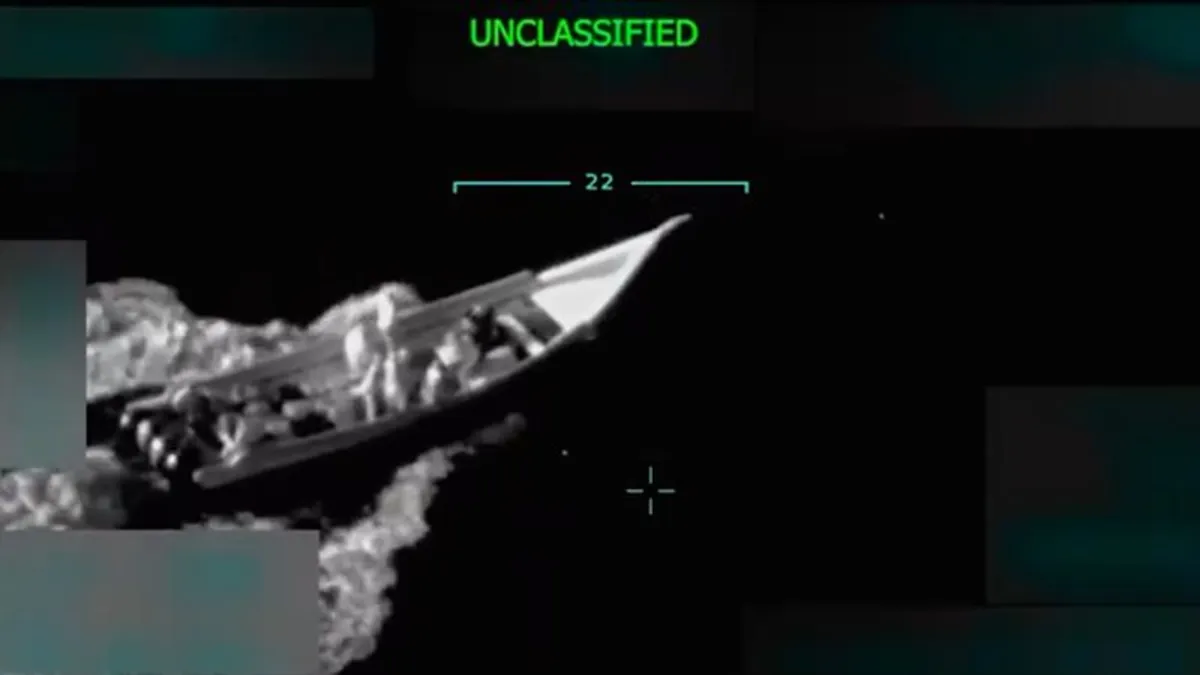
The US military executed a follow-up strike on a suspected drug vessel in the Caribbean on September 2, following an initial attack that left some individuals on board alive, according to sources familiar with the situation. This marked the beginning of a series of military operations targeting alleged drug boats in the region. While the first strike reportedly disabled the vessel and resulted in casualties, military assessments indicated that there were survivors present after the attack.
The second strike conducted by the US military resulted in the deaths of the remaining crew members on the vessel, bringing the total death toll to 11 and leading to the sinking of the ship. Secretary of Defense Pete Hegseth had previously ordered that the operation ensure the elimination of all individuals on board. However, it remains unclear whether he was aware of the survivors prior to the second strike, as noted by one of the sources.
The actions and resulting fatalities were publicly announced by President Donald Trump on the same day as the attacks, yet the administration has not officially acknowledged the presence of survivors during these strikes. On Thursday, Trump hinted that operations on land aimed at disrupting suspected drug trafficking networks in Venezuela could commence "very soon," amidst ongoing discussions regarding the legality of the US military's operations in Latin America.
Officials have admitted that they often do not possess complete knowledge of the identities of those aboard the targeted vessels before launching strikes, as reported by CNN. Democratic Representative Madeleine Dean expressed alarm over the number of vessels attacked without prior consultation with Congress. She revealed that during a recent review of classified documents related to the strikes, there was no evidence clarifying the circumstances surrounding the incidents.
Individuals briefed on the “double-tap” strike expressed concerns that such actions could potentially violate the law of armed conflict, which aims to protect those who are "hors de combat" (out of the fight) due to injury or surrender. Sarah Harrison, a former associate general counsel at the Pentagon, emphasized that the actions could be classified as unlawful, stating, "They’re killing civilians in the first place, and then if you assume they’re combatants, it’s also unlawful." Under the law of armed conflict, individuals who are no longer able to fight must be treated humanely.
Reports from The Intercept and the Washington Post revealed that the US military was aware of survivors in the water following the first strike and subsequently conducted a second attack to ensure the sinking of the vessel and the termination of the remaining crew. Pentagon officials later explained to lawmakers that the purpose of the second strike was to neutralize the boat as a navigational threat.
The US military has targeted vessels on multiple occasions to sink them, but the September 2 incident appears to be the only known case where the military intentionally killed survivors. It remains unclear why these survivors were not rescued, especially given that two survivors were taken into custody after another strike in the Caribbean later in October.
In a post on Truth Social, President Trump described the September 2 operation as a "kinetic strike against positively identified Tren de Aragua narcoterrorists." The administration has sought to justify its military actions by claiming that the vessels were carrying individuals associated with approximately two dozen drug cartels engaged in armed conflict with the US. The White House has consistently maintained that these actions are in full compliance with the Law of Armed Conflict, an international legal framework designed to safeguard civilians during military operations.
However, many legal experts argue that the suspected drug traffickers should be considered civilians rather than combatants, thus classifying the strikes as extrajudicial killings. Historically, the responsibility for counteracting illicit drug trafficking in the region has fallen to law enforcement and the US Coast Guard, treating cartel members as criminals entitled to due process rights.
A classified legal opinion from the Justice Department suggested that the president is authorized to order lethal strikes against 24 cartels and criminal organizations in self-defense, citing an imminent threat to Americans. This justification has been called into question, particularly as evidence indicates that at least one targeted boat had turned away from the US prior to being struck. Additionally, the survivors of the September 2 strike posed no immediate threat, further complicating the legal justification for the military's actions.
Concerns over the legality of these military operations have also been echoed by senior US defense officials and allies. Admiral Alvin Holsey, commander of US Southern Command, reportedly offered to resign during a tense meeting with Secretary Hegseth and the Chairman of the Joint Chiefs of Staff after expressing doubts regarding the legality of the strikes. Holsey is set to leave his position in December, just a year into his tenure as the chief of SOUTHCOM. Furthermore, lawyers specializing in international law within the Department of Defense have raised significant concerns about the legality of these military actions.